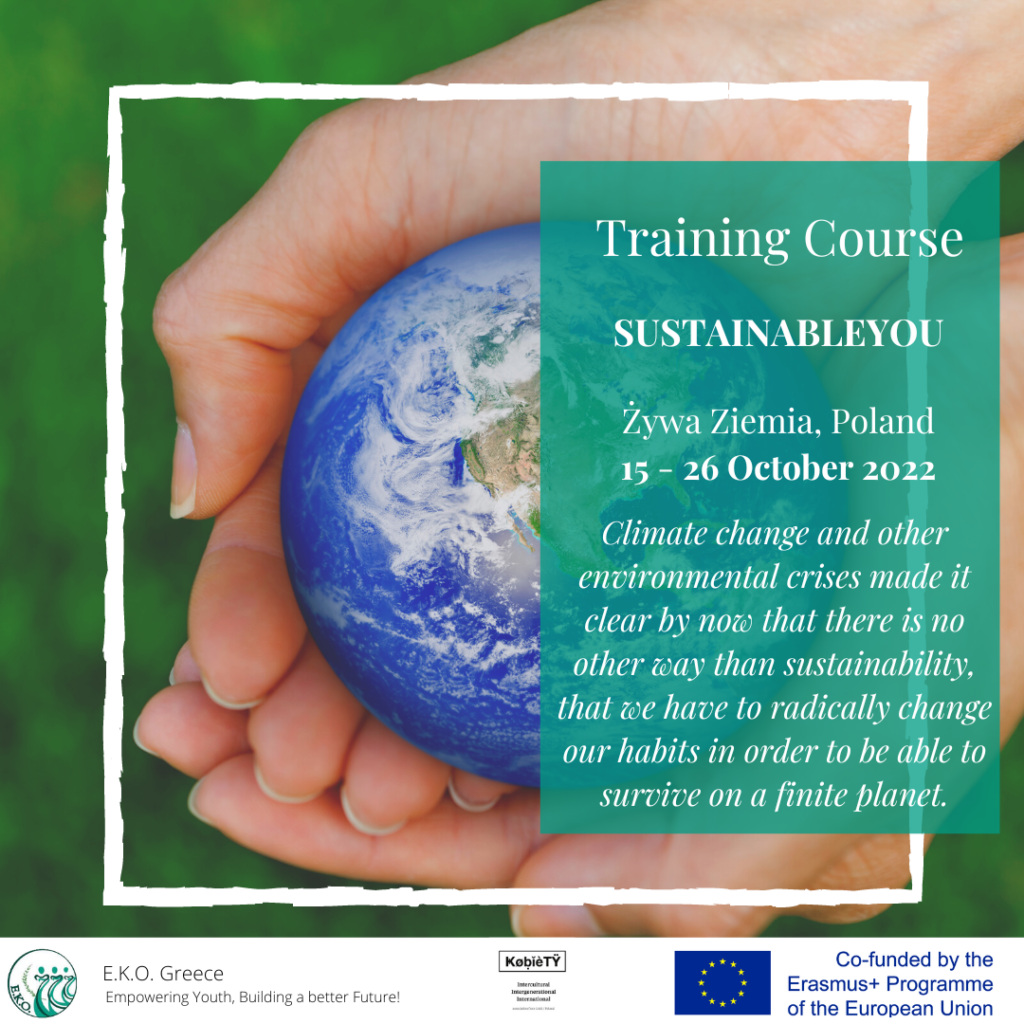SustainableYOU

!! PARTICIPATION FEE: 50 EURO !!
specific targets, like reducing the carbon footprint. All so very important, but still not enough. We cannot make it as long as we are stuck in an old paradigm, attached to concepts like individualism, consumption, etc.
PARTICIPANTS: 24 (3 from each organization)
** The project covers 100% of accommodation, meals, local transportation and travel tickets (based on Erasmus+ Distance Calculator: maximum 275 EUROS for a round trip).
COUNTRIES: Poland, Portugal, Greece, Hungary, Italy, Romania, Spain, and Turkey
LANGUAGE: The working language will be English
MAIN OBJECTIVES: The main objective of “Sustainable Communities for You(th)” is to have a closer look at, discuss, analyse and practise sustainable communities.
Based on our experience, deep discussions and detailed research, which included both reading and listening about existing sustainable communities, as well as observing some of them directly, we identified four basic pillars of sustainability:
1. Personal sustainability, understood as awareness of one’s talents, strengths, dreams, values, goals and visions and ability to follow them and use them effectively in one’ s development and search for fulfillment and happiness. Getting to know tools of personal, collective, financial and environmental sustainability which can be used directly in our work with partner organizations, youth and local communities.
Reflecting on what “community” means for us , becoming open for creating various kinds of communities with our coworkers, family, neighbours, youth, based on principles like respect and appreciation of diversity; giving voice to people who may not be heard enough, through better approaches to communication and decision-making; joint effort to fight the climate crisis and take deep care of the environment in its broader sense.
Deepening our relation with partner organizations, building with them an international sustainable community.
2. Collective sustainability, understood as the ability of communities and groups to make decisions in a fair, inclusive manner, based on nonviolent communication and active listening to all its members as well as solving conflicts in a way that empowers people instead of dividing them.
3. Financial sustainability, understood as being able to get the resources needed for the community to thrive in a responsible and effective way.
4. Environmental sustainability, understood as building our spaces, sourcing our food, dealing with the wider nature, having in mind not only the needs of our species, but also the needs of other beings and of the planet as a whole.